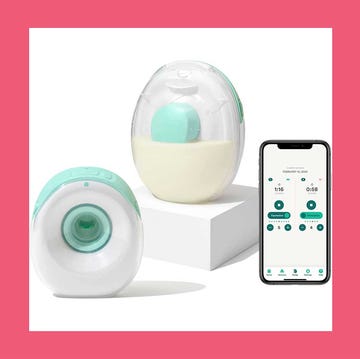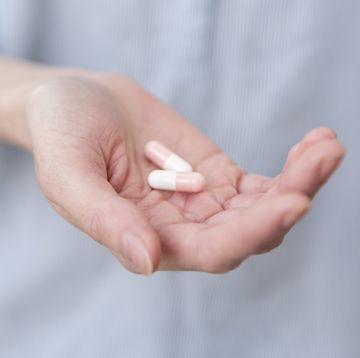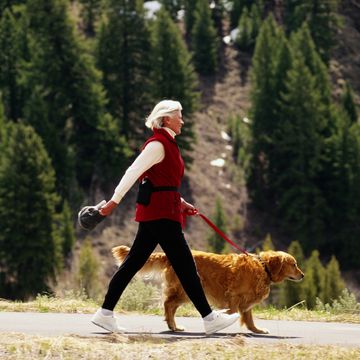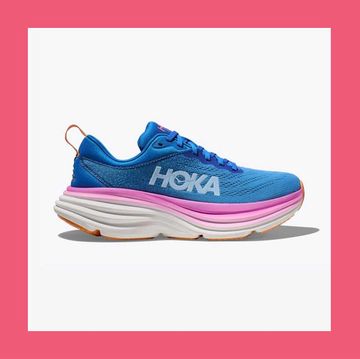If you haven’t heard, cardiovascular disease (CVD) is still the leading cause of death in the U.S., affecting some 121 million Americans. Approximately every 40 seconds, someone will have a heart attack; every 3.5 minutes, someone will succumb to a stroke. Kind of a bummer, isn’t it?
Here’s the good news: 80% of CVD is preventable through lifestyle modification. In fact, some of the simplest decisions you make every day can have a profound impact on your heart and vascular health, as well as your lifespan.
We’ve compiled a list of science-backed habits that should be part of everyone’s wellness arsenal. In fact, it wouldn’t be surprising to find out that you’re already be doing many of them. If that’s the case, read on to learn how you can make minor tweaks to improve upon those behaviors to show your body’s hardest-working muscle even more love.
1. Increase Your Fluid Intake
Never without your reusable water bottle? Wise move. Recent research suggests that staying well hydrated not only supports essential body functioning; it may also help support your future health. Meet your daily fluid needs, which are highly individual, with plain old water, along with H2O-rich fruits and vegetables and calorie-free beverages like unsweetened tea.
2. Live a Smoke-Free Life
One in four deaths from CVD is tobacco-related, so kudos if you’ve steered clear of cigarettes and vapes. If you’ve recently quit, benefits kick in within weeks. Go cold turkey for a year and you’ll slash your odds by half; after five years, your risk is reduced to that of a nonsmoker.
3. Laugh Out Loud
A belly laugh a day just may keep the cardiologist away. Laughing can boost blood flow, lower stress-hormone production, and decrease inflammation and plaque buildup in the arteries. In one study, older adults who laughed on a daily basis were less likely to suffer a heart attack or stroke than their more somber counterparts.
4. Exercise Intermittently
You’ve made fitness a priority this year, but some weeks it’s harder to fit in those 150 minutes of aerobic exercise. No sweat! Running for the bus, racing up the stairs, chasing your kids around a playground… Just three brief bursts of daily activity are shown to reduce your odds of dying prematurely from heart disease.
5. Take a Tea Break
Love your morning cup of green tea or afternoon brewed unsweetened iced tea? Your heart does too. According to a study, researchers found that people who drank two to three cups of tea daily were less likely to have died from all-cause and specific causes of death such as cardiovascular disease, ischemic heart disease, and stroke. Black and green teas contain natural plant bioactives called flavonoids, which are responsible for tea’s color and flavor and have been associated with heart health benefits, including supporting healthy blood circulation essential for heart health.
6. Know Your Numbers
Nine out of 10 women have at least one risk factor for heart disease, including hypertension (aka high blood pressure), high cholesterol, high blood glucose levels, and obesity. Learning your baseline numbers and what they mean for you is the first step toward reducing your odds.
7. Go With the Grain
Attention, carb lovers: Research links eating whole grains to better blood-sugar control, lower blood pressure, and smaller increases in waist size as you age. Aim for three servings daily—the equivalent of ½ cup of oatmeal, 1 slice of whole-grain bread, and ½ cup of brown rice.
8. Prime Yourself for Sleep
Turning in earlier each night is a great way to get more sleep—unless you’re too wired to nod off. For a smoother transition, power down an hour before bedtime. Sip a cup of chamomile tea, or dim the lights and listen to some relaxing music.
9. Be Aware of Your Weight
Excess weight often goes hand in hand with high cholesterol, hypertension, and pre-diabetes, so it can help to keep tabs with weekly or daily weigh-ins. If the scale is trending up, reexamine your diet or activity level.
10. Cut Back on Booze
Yes, the occasional tipple is fine. It’s imbibing to excess that brings about a host of problems, from hypertension and arrhythmia to a weakening of the heart muscle. Cap your alcohol consumption at one drink a day, which translates to 12 ounces of beer, 5 ounces of wine, or 1.5 ounces of spirits.
11. Mind Your Muscles
Exercise recommendations include twice-weekly weight-bearing sessions to build bone density, prevent injuries, and burn more calories. Your heart muscle will also reap the rewards. Researchers revealed that just an hour of weight or resistance training may slash your risk for a heart attack or stroke by as much as 70%.
12. Find the Good
There are a myriad of health benefits associated with positive thinking, including lower rates of depression and anxiety, greater resistance to illness, and a reduced risk of death from CVD. Start a gratitude journal or simply write down one good thing that happened today.
13. Make Every Step Count
No equipment, lots of fresh air, and big-time cardiovascular benefits—what’s not to love about a fitness walk? Next time you’re hoofing it, strap on a smartwatch or step counter: In a recent study, people who wore an activity tracker logged about 318 more steps per day than those without one.
14. Get Your Flu Shot
Not getting seriously ill from the flu is reason enough to roll up your sleeve for the annual vaccine. But this seasonal shot may also protect your heart from the stress this influenza infection puts on the body. A 2022 study found that people who received a flu vaccine had a 34% lower risk of a major cardiovascular event in the year following the vaccination.
15. Opt for Fish
You can’t help but feel virtuous when you order salmon instead of a cheeseburger. Salmon and other fatty fish—like tuna, sardines, mackerel, trout, and herring—are great sources of omega-3 fatty acids, which may contribute to heart health by affecting triglyceride and cholesterol levels. Current dietary recommendations suggest eating fish twice a week.
16. Sidestep Salt
The shaker disappeared from your table soon after you learned of its connection to high blood pressure. Still, much of the salt you eat comes from canned and processed foods, like soups, baked goods, condiments, and frozen dinners. Read labels carefully, opting for low- or reduced-sodium products, and use herbs and spices to flavor your dishes.
17. Practice Yoga Daily
Beyond building strength and flexibility, enhancing balance and posture, and off-loading stress, your yoga practice may help keep heart disease at bay. Studies have linked the 5,000-year-old discipline with heart-healthy benefits, such as improved blood measurements and waist circumference and fewer atrial fibrillation episodes.
18. Have Sex More
The perks of an active sex life extend well beyond the bedroom. The release of endorphins and other feel-good hormones released while getting busy may improve sleep, ease stress, and lower blood pressure.
19. Choose Chocolate
In a 2021 study, eating chocolate at least once a week was associated with an 8% decreased risk of coronary artery disease. Cocoa contains heart-healthy flavonoids, which are shown to support heart health. Enjoy in moderation for optimum benefits.
20. Spend Time With a Pet
Your furry friend may provide more than companionship and unconditional love. Numerous studies find dog and cat ownership to have a hugely positive impact on physical and mental health. In addition to easing stress and anxiety levels, it’s been shown to reduce known heart-disease markers and increase exercise levels.
21. Brush Thrice Daily
Healthy mouth, healthy heart? Possibly. A 2019 study found that people who brushed their teeth three or more times per day had a 10% lower risk of atrial fibrillation and a 12% reduced risk of heart failure than less frequent brushers. The bacteria that causes gum disease are believed to be the culprit.
22. Seek Out Soothing Activities Daily
Emotional stress can trigger a cascade of physical effects, including the release of hormones like cortisol and adrenaline, which narrow your arteries and spike blood pressure. To offset angst, seek out activities that soothe you each day, whether it’s kicking back with a book and a cup of tea, running, or meditating.
23. Set Your Table More
Inflation may have many of us dining out less often, but it’s hardly a bad thing. Cooking your own meals allows you to control what goes in them (lean protein, fruits and vegetables, healthy fats), and what doesn’t (excess sodium, saturated fat, added sugars)—all while maintaining reasonable portion sizes. Research has associated frequently preparing dinners at home with a healthier diet.
24. Build a Network
Adults with meaningful relationships and strong social networks have a reduced risk of many chronic health problems, including anxiety, high blood pressure, and an unhealthy body mass index, or BMI. Studies of older adults find they’re also likely to live longer than their peers with fewer connections.
























